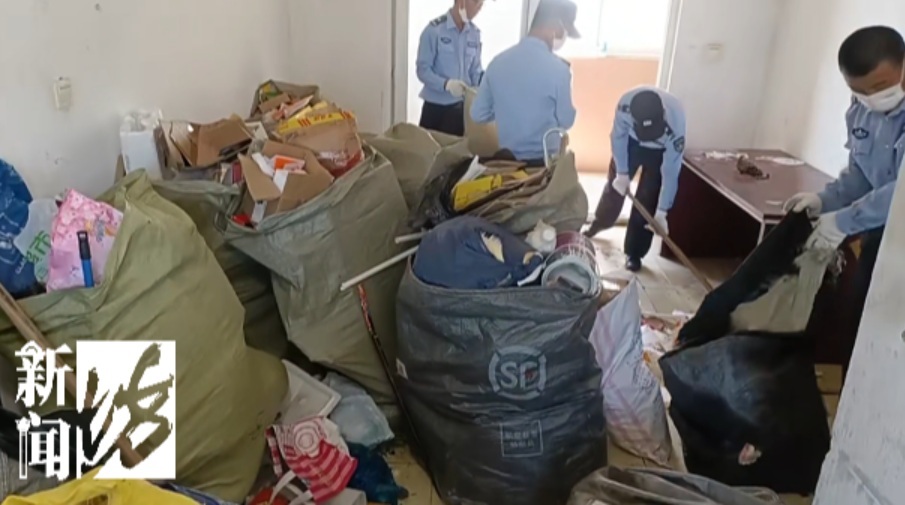The woman's son explained that his mother, despite being frugal, was willing to spend 4,500 CNY each month on two extra apartments solely for storing her massive collection. "The trash piled up like a mountain, threatening to spill out with every door opening," he said.
Neighbors reported that the woman's hoarding began as soon as she moved in, leading to infestations of cockroaches and insects that spread to other apartments, significantly impacting the community.
Li Longbiao, a building management representative, visited the woman at least twice a week to address the issue, but she continued to bring more trash into her apartments.
 |
Authorities hired workers to clear the apartments. Photo: Sina |
Authorities hired workers to clear the apartments. Photo: Sina
Despite interventions from authorities, building management, and her son, the situation barely improved. "My habit is unchangeable," the woman stated.
Her son and his wife cleaned her apartment three times between 2014 and 2015, but the hoarding resumed shortly after each attempt. "The trash took up all the living space, making it impossible for us to live with her," the son explained.
Recently, local authorities mobilized over 40 people and seven trucks to remove the 30 tons of accumulated waste over two days.
Police also took the woman for a mental health evaluation. Doctors identified signs of depression and recommended medication and therapy, which she refused.
Experts at the Shanghai Mental Health Center believe this behavior reflects hoarding disorder, often stemming from feelings of loneliness, insecurity, and loss of control. Those affected believe everything holds value, and discarding items causes anxiety. The prevalence of this disorder among older adults is approximately 6%.
Doctor Yan Feng cautioned that if sudden hoarding in seniors is accompanied by memory decline, families should consider the possibility of Alzheimer's disease or other forms of dementia.
Studies indicate that at least 50% of hoarding patients also experience depression or anxiety.
Experts advise against forced cleanups, as they can trigger strong negative reactions and worsen the situation. Instead, they recommend a comprehensive approach involving medical professionals, family, and community support to address the underlying loneliness and insecurity, thereby gradually reducing hoarding behavior.
Nhat Minh (Sina)












